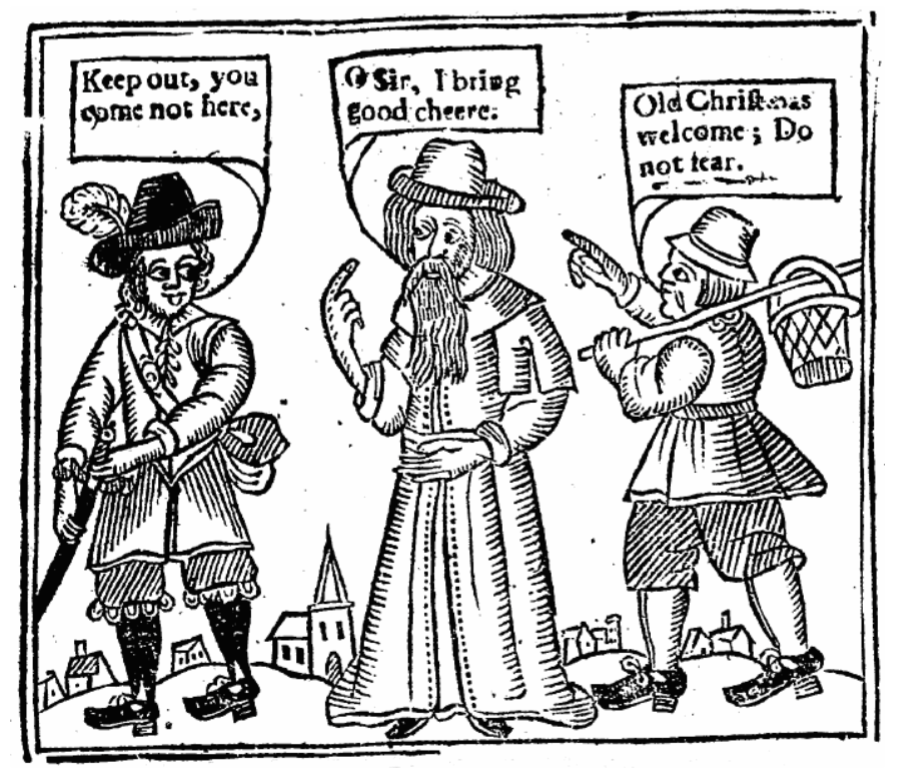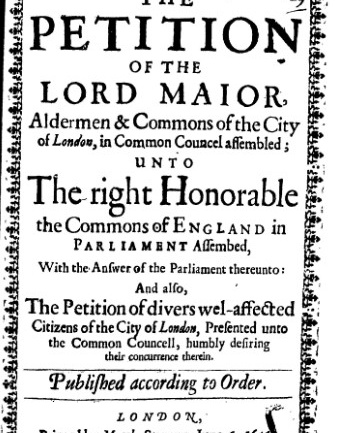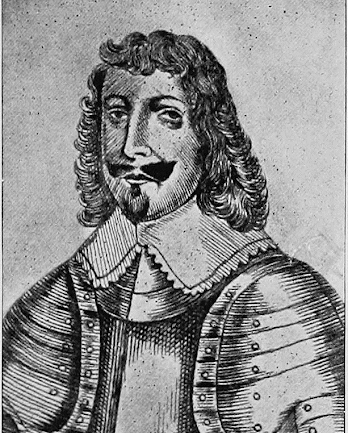[Edited by Angela Andreani]
In a letter dated August 1649 Salvetti relates the measures taken by the Republicans to make the people forget the monarchy and accept the new Commonwealth. The first step was to obliterate the memory of the King:
«And since they want to get rid of anything that could keep the memory of the king alive in people’s mind, they have ruled that all of his arms and insignia presently found in all churches, households and other places throughout the realm be taken down, and that it be especially forbidden to the preachers, under great penalties, to pray God for the new king and for others of the royal progeny as they used to do in their sermons.»
«Et perché vogliono torre via qual si voglia cosa, che possi tenere nel popolo viva la memoria de re, hanno perciò comandato che siano atterrare tutte le sue arme et insegne che di presente si trovano in tutte le chiese, case et altri luoghi del regno, et anche di più proibito ai predicatori, sotto gravi pene, di pregare Dio come erano soliti di fare nelle lor prediche, per il nuovo re, né per altri della prole regia»[1].
The distinctive precedence given to churches and preachers should not surprise us if we consider the central role played by worship and preaching in early modern English life. Sermons were the dominant cultural form, the pre-eminent genre of instruction and edification, functioning both as an instrument of God and as an instrument of the state[2].The preaching of sermons drew big congregations far outnumbering even the audiences of the main dramatists of the time. Between 1640 and 1660, the political dimension to preaching rose even more[3].
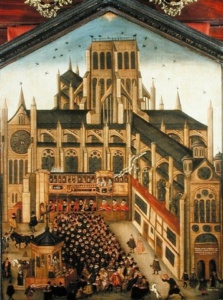
Public domain, via Wikimedia Commons
Salvetti remarked on the role of preachers in several of his letters to Florence. In a dense report updating on the situation in Ireland and Scotland, and on the escalation of violence in London, Salvetti discusses the exacerbation of the religious conflict and the factionalism it produced:
« […] it will be near impossible to keep them [i.e. the factions] at bay, preventing them from coming to blows, and thus upset the whole realm: the Independents and the Presbyterians are the main [factions], and those fighting for supremacy, and hence hate each other to death».
«[…] sarà quasi impossibile di tenerle [i.e. le fazioni] nei lor limiti, senza che infine non venghino alle mani fra di loro, con disturbo di tutto il regno: l’Independente et la // presbiterale sono le principali, et quelle che contrastano per la sovranità, et che perciò si odiano a morte»[4].
As these labels reveal, religion lay behind many of the divisions in the Civil War. Presbyterians and Independents disagreed about how the Church should be organised: whilst the latter wanted a loose church system, with a minimum of central organisation, the former wished to set up a Presbyterian English Church ruled by ‘elders’, on the model of the Scottish Church[5].
Salvetti continues to relate the imprisonment of clergy in St Paul’s Cathedral:
« In the meantime, making use of their authority, the Independents do not want to allow the Presbyterian preachers to preach anything against them, as they did the previous week, and were forcefully removed from their pulpits by armed soldiers and sent as prisoners to St Paul’s Cathedral, now turned into stables for their cavalry, to stand military trial, so that all of them now live in great fear, not to say turmoil».
«Nel mentre servendosi l’Independente della sua presente autorità, non vuole permettere ai predicatori presbiterali di predicare cosa alcuna contro di loro, che lo fecero la settimana passata, furno dalla soldatesca (armata manu) levati per forza dai lor pulpiti et condutti prigioni nella chiesa cathedrale di S. Paolo, hora fatta stalla per la loro cavalleria, per processarli (come dicono) militariamente, onde ogn’uno vive adesso in grandissimo timore, per non dire confusione»[6].
The pulpit of Paul’s Cross had in fact been demolished sometime around 1641, in 1642 the cathedral itself was closed for worship and the deanery was converted into a prison in 1643.
In a later report dated 25 March 1650, Salvetti appears to sympathise with the Republicans’ mistrust of Presbyterian preachers:
«Hanno ben causa di dubitare della fazione presbiterale, la quale comincia a mostrarseli molto opposita, et per bocca de’ loro predicatori ad esagerare contro di questo nuovo governo et contro del nuovo giuramento, che forzono i sudditi di pigliare etc.»[7].
Harsher penalties were inflicted upon preachers than on the rest of the population. According to Salvetti, of the many protestant arrested in 1657 because they had celebrated Christmas, many were released after a few days, but not the preachers:
«[…] the preachers are always guarded, and it is said they will be interrogated, and maybe evn punished, as transgressors of an old Parliamentary Act».
«[…] li predicatori sono sempre tenuti sotto guardia, et si dice che saranno essaminati, et forse anche castigati, come violatori d’uno atto antico parlamentario».
The episode took place during the ‘Rule of the Major-Generals’, the period of direct military government (August 1655-January 1657), during which the Christmas ban passed by Parliament in 1647 was enforced more rigorously.
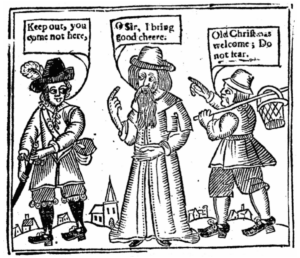
https://commons.wikimedia.org/wiki/File:Frontispiece_to_%27%27The_Vindication_of_Christmas%27%27_by_John_Taylor,_1652.png
[1] Archivio di Stato di Firenze (from now ASF), Mediceo del Principato, Avvisi da Londra, vol. 4202, c. 932v-935r, 20 agosto 1649.
[2] Shami, Jeanne, “The Sermon”, in Andrew Hiscock and Helen Wilcox (eds.), The Oxford Handbook of Early Modern English Literature and Religion, Oxford, Oxford University Press, 2017, pp. 185-189.
[3] Webster, Tom, “Preaching and Parliament, 1640-1659”, in Peter McCullough, Hugh Adlington and Emma Rhatigan (eds.), The Oxford Handbook of the Early Modern Sermon, Oxford, Oxford University Press, 2011, pp. 404-420.
[4] ASF, Mediceo del Principato, Avvisi da Londra, vol. 4203, c. 17-17v, 24 settembre 1649.
[5] MacCulloch, Diarmaid, Reformation: Europe’s House divided 1490-1700, London, Penguin, 2004.
[6] ASF, Mediceo del Principato, Avvisi da Londra, vol. 4203, c. 17v, 24 settembre 1649.
[7] ASF, Mediceo del Principato, Avvisi da Londra, vol. 4203, c. 129v, 25 marzo 1650.


